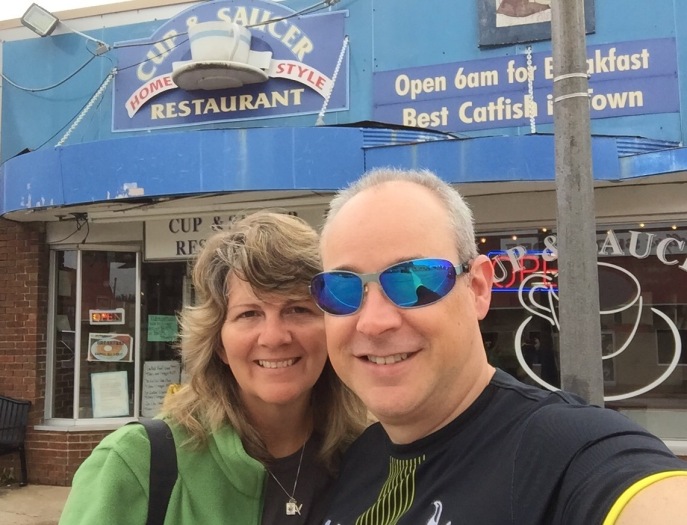One man’s transparency is another man’s chasm.
North Carolina Senate Bill 94 (of session 2017) proposes to add transparency to municipal elections by requiring them to be conducted on a partisan basis (§ 163-279). While this bill sounds great, because “transparency” sounds like a good thing, there are three good reasons why forming this instant chasm is a bad idea.
Potholes are party agnostic. What are the most important issues facing many growing towns? Keeping the crime rate low. Managing increased traffic flow. Ensuring an adequate supply of clean water and sewer capacity. Providing recreation spaces and programs. Fixing potholes.
Funding these things is a core service of any municipality and none of them are partisan issues. If you are skeptical, check the party planks for your state. Lots of bullets related to family, fairness, faith, equality, limited government, education, healthcare, environment, economy, constitutions, etc.
These are all great issues for discussion, but are macro-environmental principles. They don’t address the question of “how does my 10-year-old walk safely to school”, “can I play an indoor sport with people my own age?” or “who’s going to fix that pothole at the entrance to my neighborhood?”
The answers to these questions are not pulled out of partisan platforms, but culled from common crises. We realize we all have the same basic problems, we all come together and we solve them together. Because potholes are party agnostic.
Non-partisanship begins with commonality. When municipal elected officials wear party labels, an initial separation is formed, unnecessarily. Instead of acknowledging that we have 90% or more in common, we would begin with an instant gap to overcome… or not, since it’s rare for people to move that far in order to find common ground.
But when we start with no labels… when we know that the person sitting next to us is a husband or wife, mom or dad like us… when we realize they take their garbage and recycle bins out to the street once a week just like us… when we look at the council member beside us as another beautiful creation of a loving God… that’s when we start the conversation with the foundation of the assumption of an imminent resolution.
That is, we expect to find a solution together. Because non-partisanship begins with commonality.
Solving local problems involves choosing the best person, not the best partisan. Anybody can play to the party base to get them angry about some non-local issue. It’s not that difficult — you throw out some “raw meat” topics, and you convince them to run vote for the candidate in your own party.
But negative campaigning doesn’t translate well to good future governing. And partisan macro issues don’t translate to addressing the problems in front of us daily.
The best local government is the one comprised of smart, thoughtful problem-solvers who can work well with others, in a team environment. Solving local problems involves choosing the best person, not the best partisan.
When we need a land developer or a new school construction project to add a sidewalk, a pedestrian crossing, a stop light or a new turn lane, it matters “zero” whether we agree on gun legislations, bathroom usage, universal healthcare or standing for the national anthem and the flag.
Instead, we have a simpler problem because, in municipal matters, we generally want the same thing: safety, quality of life, jobs and freedom. We achieve this when we can shed party labels long enough to row the boat together, pulling the oars in the same direction, to reach our intended destination.
Senate Bill 94 calls “partisan” municipal elections “transparent”, but I call them divisive. An unnecessary instant chasm.


















